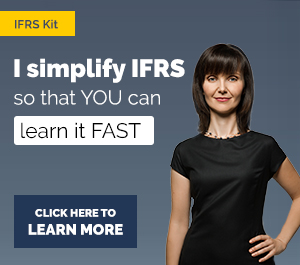IFRS 10 Consolidated Financial Statements
International Financial Reporting Standard 10
Overview of IFRS 10
- Issued: in 2011; followed by amendments
- Effective date: 1 January 2013
- What it does:
- It defines when an investor controls an investee:
- When the investor is exposed, or has rights, to variable returns from its involvement with the investee; and
- Has the ability to affect those returns through its power over the investee.
Investor controls the investee when the he has all three elements:
- Power over the investee.
- Exposure, or rights, to variable returns from its involvement with the investee, and
- The ability to use its power over the investee to affect the amount of the investor's returns.
- IFRS 10 sets the accounting requirements for preparation of consolidated financial statements, consolidation procedures, reporting non-controlling interests and treatment of changes in ownership interests.
- IFRS 10 also contains special accounting requirements for investment entities.
- It defines when an investor controls an investee:
Articles related to IFRS 10
- Complete IFRS Consolidation lecture (almost 80 minutes in 1 video)
- Summary of IFRS 10 Consolidated Financial Statements
- Intro to consolidation and group accounts – which method for your investment?
- Example: How to consolidate
- Example: Consolidation with foreign currencies
- How to make consolidated statement of cash flows with foreign currencies
- How to test goodwill for impairment
- How the groups change
- How to consolidate special purpose entity
- How to account for the disposal of subsidiary
- How to account for intercompany loans under IFRS
Questions and Answers
- How to treat different useful lives of PPE used by the parent and subsidiary?
- How to calculate impairment on intercompany loans?
- Accounting when acquired subsidiary is not a business - how to account for the asset acquisition in both separate and consolidated financial statements
- Non-controlling interest in a private company - how to account for the acquisition of share in a private company
Other Resources
- IFRS Kit - learn IFRS in 150+ videos, 150+ excel case studies, quizzes, certificates
- Expected Credit Loss for Accountants - highly specialized course focused on ECL under IFRS 9 with step-by-step example related to trade receivables, many practical insights included.


